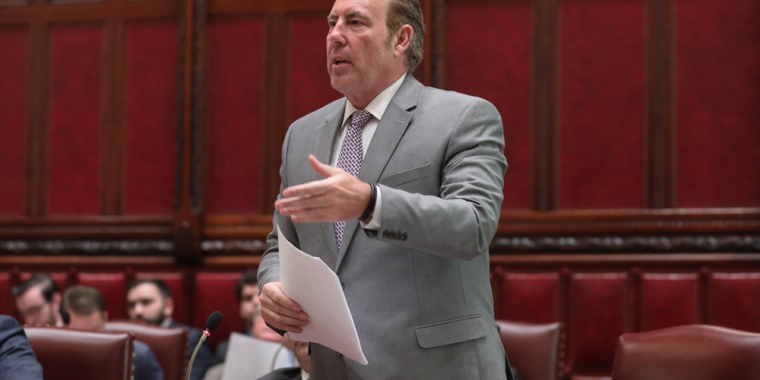
Senator Robach Joins Senate Republicans To Unveil Family Tax Relief Act
Joseph E. Robach
March 4, 2013
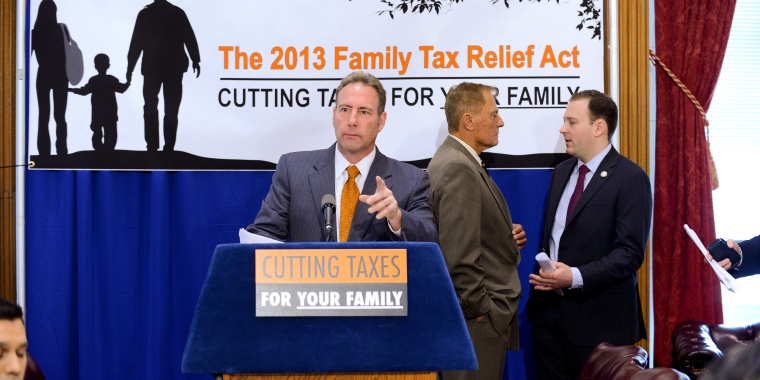
Plan Would Increase Tax Credits to Help Struggling Middle Class Families,
Restore STAR Property Tax Rebate Checks for Millions of New Yorkers
Senate Republican Leader Dean Skelos and members of the Senate Republican Conference today unveiled the Family Tax Relief Act, a package of tax relief and reform measures designed to provide a major economic boost to New York’s struggling middle class families.
The Senate Republican plan would increase tax breaks that have not kept pace with inflation, and, in some instances, haven’t been adjusted for more than 25 years. The plan also restores the STAR property tax rebate check program to provide real and direct relief to millions of New Yorkers who pay some of the highest property taxes in the country.
“The Family Tax Relief Act will give relief to the overburdened middle class families, working men and women, and individuals throughout my district and across New York State, Senator Joe Robach said. “I often hear there are programs and resources to help low income people and that high income people continue to flourish, but we often leave out the middle class. This plan directly impacts the middle class people in my district.”
“Federal payroll taxes went up, paychecks got smaller, the cost of health care, gas and tuition have gone through the roof, and family budgets are squeezed even tighter,” Senator Skelos said. “Just when families find a way to make ends meet, somebody moves the ends.”
“Millions of middle-class families are finding it more difficult to maintain a decent standard of living and stay in New York,” Senator Skelos said. “The existing state tax breaks for middle class families have been significantly eroded by inflation. Our plan updates them to provide families with much-needed tax relief from income and property taxes.”
The Senate plan would: more than double the value of the Dependent Exemption; increase the Child Tax Credit and provide an additional $500 child tax credit; increase the value of the Dependent Care Credit; and restore STAR property tax rebate checks.
The current $1,000 value of the Dependent Exemption was last updated in 1987. At that time, gasoline was 89 cents-per-gallon and iPads and flat screen TVs didn’t exist. Since then, inflation has reduced the value of that exemption to essentially nothing. The value of similar family tax credits have also been eroded significantly and would be adjusted by the Senate
For a family with an annual income of $55,000 and two children, the total increase in tax savings would be $1,036. A family making $100,000 a year with two children would have their tax savings increased by $812. A single parent with one child and an income of $45,000 per year would see an increased tax savings of $811 under the Senate plan.
The Senate Republican Family Tax Relief Act includes the following:
Increase Dependent Exemption
> Increase the Dependent Exemption from $1,000 to $2,020 per dependent;
> Allow a subtraction from gross income for each dependent the taxpayer claims;
> Dependent Exemption last increased in 1987.
Increase Dependent Care Credit
> The Dependent Care Credit, which is a percentage of the federal credit, allows taxpayers a tax credit for the expenses incurred for the care of a child;
> Dependent Care Credit last increased in 1999;
> Our plan will increase the percentage range of the federal child care credit that parents can receive, from 20 percent to 110 percent (depending on income), to 27 percent to 150 percent of the federal child care credit.
Increase Child Tax Credit
> Increase the maximum Child Tax Credit from $330 to $375 to adjust for inflation;
> Child Tax Credit last amended in 2006;
> Our plan increases the Child Tax Credit from 33 percent of the federal child tax credit to 37.5 percent;
> In New York State, married-joint filers with income less than $130,000 (federal), who have a child that is between the ages of 4 and 16, can receive the credit;
> Provide an additional $500 Child Tax Credit per family.
Restore STAR Property Tax Rebate Checks
> Restore STAR Rebate Check Program to provide an estimated additional $1.3 billion in tax relief; This will provide real and direct relief to millions of people across the state, including seniors and middle class families.
Before the Senate Democrats voted to eliminate the STAR Rebate Check Program in 2009, it provided real and direct relief to millions of people across the state, many of whom pay the highest property taxes in the country. The Senate Republican plan would restore the program, providing a major boost to seniors and middle class families who are getting squeezed by high
Restoring STAR Rebate Checks would provide an additional total of approximately $1.3 billion in tax relief. The average statewide rebate check would be $445. The average enhanced STAR rebate check for seniors would be $460.
“A strong middle class is an essential part of our economy and a critical component of every community in this state,” Senator Skelos, said. “By providing more state tax relief we can help offset some of the recent federal tax increases, strengthen the middle class and also have a positive impact on small businesses that depend on them as consumers.”
The U.S. Commerce Department recently reported that retail sales across the country slowed down after the federal payroll tax was increased and consumers took home less money in their paychecks. According to the IRS, the payroll tax hike took $83 a month away from an individual with an annual salary of $50,000; $125 a month from a worker making $75,000 and $166 a month from someone earning $100,000 a year.
These proposals would build on the Senate Republican’s record of providing tax relief to middle class families, especially through the historic property tax cap which finally put the brakes on skyrocketing property taxes, and the 2011 middle class tax cut that reduced income tax rates to the lowest levels in more than half a century.
Share this Article or Press Release
Newsroom
Go to NewsroomSenator Robach Visits Parma Public Library
July 19, 2019
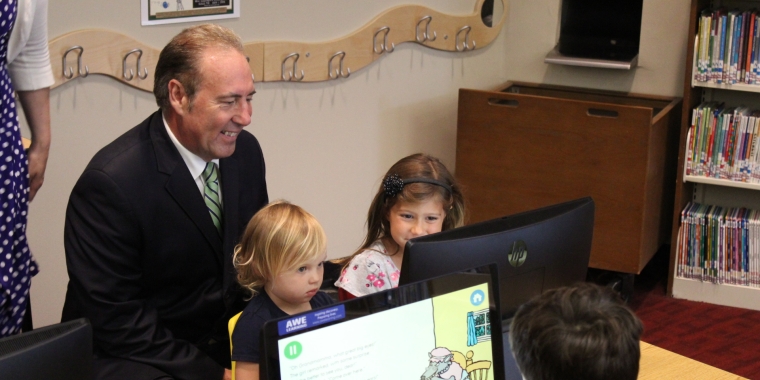
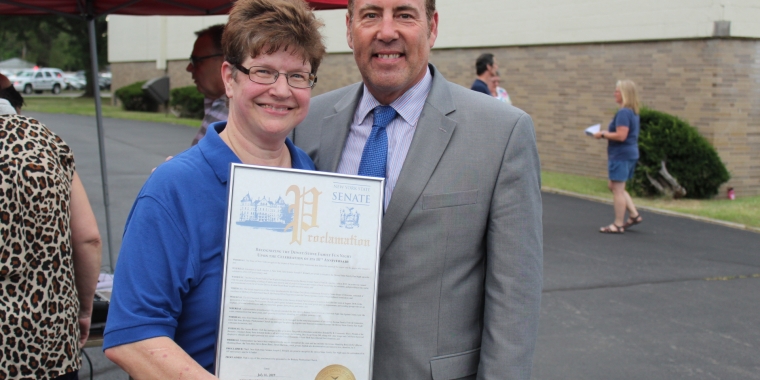
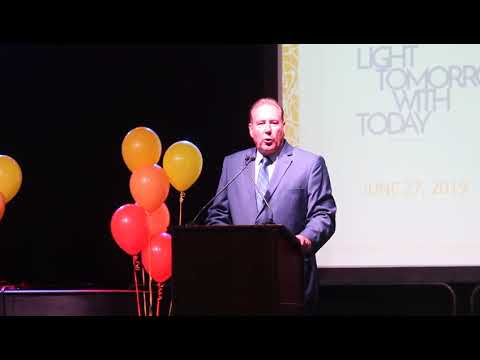
Robach Legislation Passes Senate
June 20, 2019
